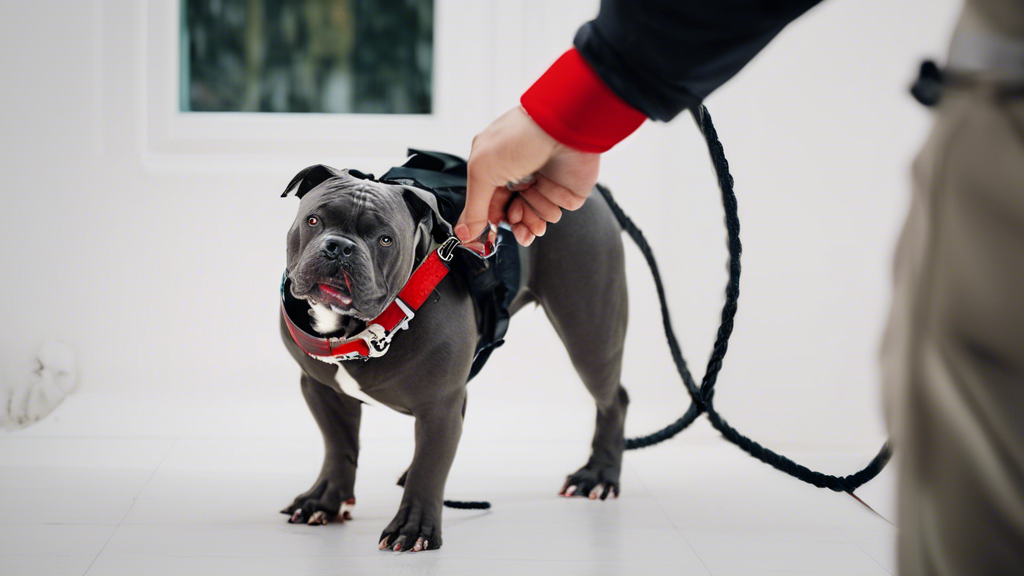**SEO-Optimized Introduction**
**Addressing American Bully Behavioral Issues for Optimal Well-being**
American Bullies, known for their distinctive appearance and loyal nature, can occasionally display behavioral challenges. These issues can range from aggression to destructiveness and arise from various factors such as genetics, environmental influences, and insufficient training. Left unchecked, these behaviors can negatively impact the well-being of both the dog and its owners.
This comprehensive guide delves into the common behavioral problems observed in American Bullies, exploring their root causes. By understanding the underlying reasons behind these issues, we can effectively develop strategies to resolve and prevent them. Through a combination of training techniques, management strategies, and veterinary consultations, this article empowers owners with the knowledge and tools necessary to foster a harmonious and fulfilling relationship with their American Bully companion.
Understanding American Bully Behavioral Issues
Common Behavioral Problems in American Bullies
American Bullies, while renowned for their loyalty and affection, can exhibit behavioral issues that require attention. Some of the most prevalent concerns include:
- Aggression: Unprovoked displays of aggression towards humans or other animals.
- Destructiveness: Chewing, scratching, or destroying household items and property.
- Excessive Barking: Persistent and excessive vocalizations that can disrupt neighbors and other household members.
- Anxiety: Fearfulness or nervousness in various situations, such as being left alone or encountering strangers.
- Jumping Up: Uncontrolled leaping on people or objects, which can be both embarrassing and potentially dangerous.
Causes of American Bully Behavioral Issues
Behavioral problems in American Bullies stem from a combination of factors, including:
- Genetics: Certain behavioral traits can be inherited, influencing a dog’s temperament and response to stimuli.
- Environment: Early life experiences, such as socialization and training, play a crucial role in shaping a dog’s behavior.
- Lack of Training: Inadequate obedience training can result in a dog that lacks self-control and exhibits undesirable behaviors.
- Underlying Medical Conditions: Some behavioral issues can be linked to underlying medical conditions, such as pain or cognitive decline.
It’s important to note that American Bullies are not inherently aggressive or dangerous dogs. With proper training, socialization, and care, they can make wonderful companions. However, understanding and addressing behavioral issues is crucial for ensuring a harmonious and fulfilling relationship with your American Bully.
The #1 Free Source for Pitbull & Bully Pedigrees!

II. Resolving and Preventing American Bully Behavioral Issues
Training Methods
Training is crucial in addressing and preventing behavioral issues in American Bullies. Effective training incorporates various methods tailored to the individual dog’s temperament and needs:
- Socialization: Early and consistent socialization with people, animals, and different environments is essential for preventing fear-based aggression and reactivity.
- Obedience: Teaching basic commands such as sit, stay, come, and heel provides structure and establishes a bond of trust and respect between the owner and the dog.
- Impulse Control: Techniques like leave it, wait, and drop it help American Bullies develop self-control and prevent impulsive behaviors.
Management Strategies
In addition to training, management strategies can be implemented to address and prevent behavioral issues in American Bullies:
- Crate Training: Crate training can provide a safe and secure space for the dog when supervised or left alone, reducing anxiety and destructive behavior.
- Environmental Enrichment: Offering interactive toys, puzzle feeders, and supervised playtime can stimulate mental and physical activity, preventing boredom and destructive behaviors.
- Veterinary Consultation: Consulting a veterinarian is crucial to rule out underlying medical conditions that may contribute to behavioral problems, such as hormonal imbalances, pain, or neurological disorders.
Importance of Consistency and Reinforcement
Consistency and reinforcement are key factors in successfully resolving and preventing behavioral issues in American Bullies. Owners should consistently enforce training commands and management strategies, providing positive reinforcement (e.g., treats, praise) when desired behaviors are exhibited.
Negative punishment, such as physical discipline or isolation, should never be used as it can damage the dog’s trust and lead to fear or aggression.
By implementing effective training methods, utilizing management strategies, and seeking professional consultation when necessary, owners can address and prevent behavioral issues in their American Bullies, fostering a harmonious and fulfilling relationship.
**Conclusion**
Addressing American Bully behavioral issues requires a holistic approach that combines understanding, training, management, and veterinary consultation. By recognizing the underlying causes of these issues, adopting effective training methods, and implementing appropriate management strategies, owners can create a positive and fulfilling environment for their beloved companions.
Remember, patience, consistency, and positive reinforcement are essential for successful behavioral modification. Veterinary consultation can provide valuable insights and rule out any underlying medical conditions that may contribute to the issues. With dedication and a commitment to the well-being of the dog, owners can effectively resolve behavioral problems and foster a harmonious bond with their American Bullies.














Leave A Comment